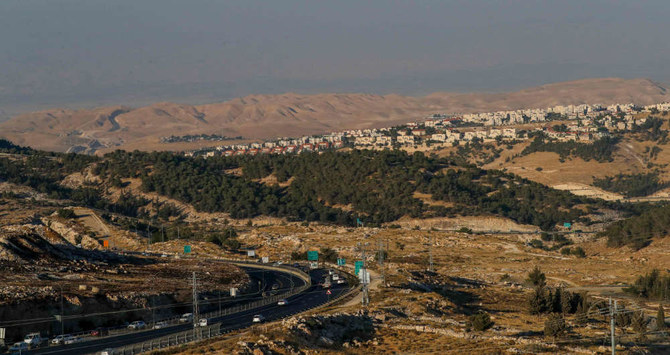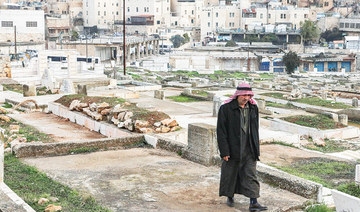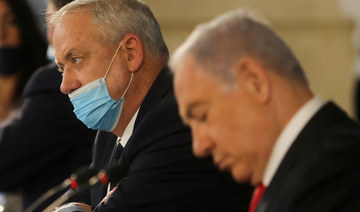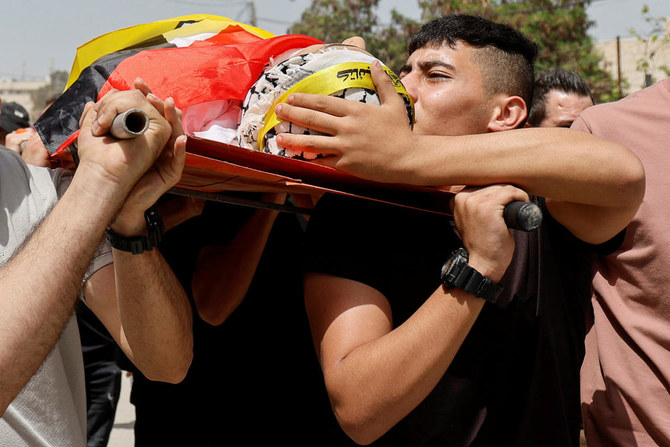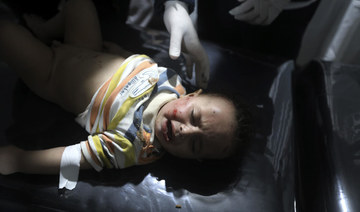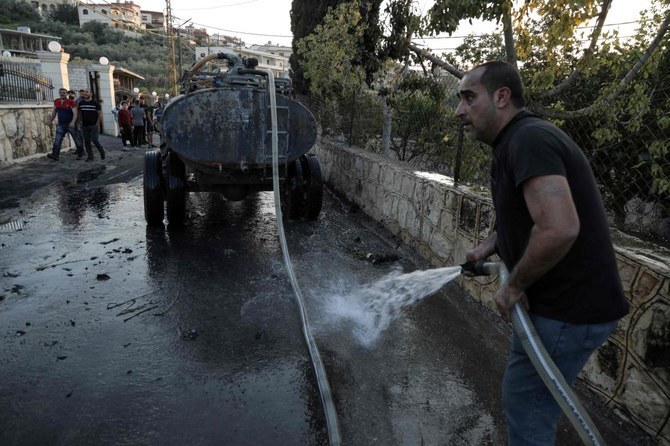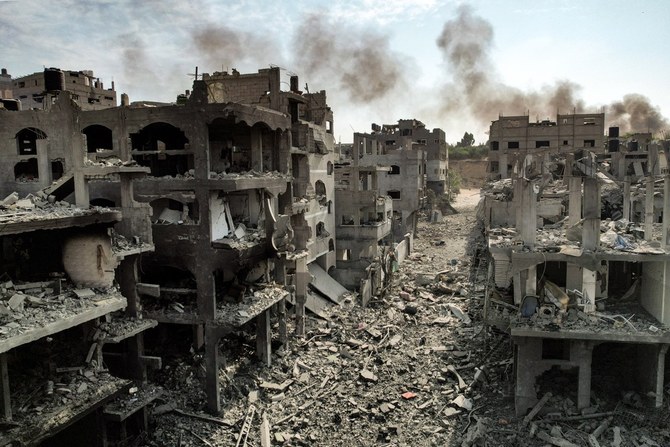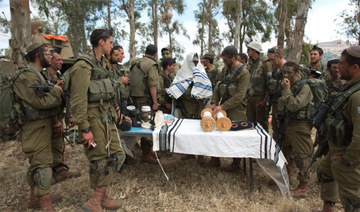GAZA STRIP, Palestinian Territories: Palestinians on Thursday mourned over people killed in Israeli bombardment of Rafah, the southern Gaza city where Israel says it is advancing plans for a ground invasion.
Global concern has mounted over the looming operation against Hamas militants in Rafah, where much of Gaza’s population has sought refuge from more than six months of war in the narrow coastal strip.
Aid groups warn any invasion would add to already-catastrophic conditions for civilians.
Israeli officials have for more than two months vowed to enter Rafah, near the Egyptian border, but even before any ground operation the area has been regularly bombed, including overnight Wednesday-Thursday.
At the city’s Al-Najjar Hospital on Thursday, two men knelt in front of a white body bag in grief, among other mourners gathered at the site.
Elsewhere in the city, Palestinians tried to salvage belongings from the rubble of bombarded buildings.
Israeli government spokesman David Mencer said Israel was “moving ahead” with its operation to go after four Hamas battalions in Rafah.
“They will be attacked,” he said.
The war began with an unprecedented Hamas attack on October 7 that resulted in the deaths of about 1,170 people in Israel, according to an AFP tally of Israeli official figures.
Israel vowed to destroy Hamas, with a retaliatory offensive that has killed at least 34,305 people in Gaza, mostly women and children, according to the Hamas-run territory’s health ministry.
Thursday’s toll included at least 43 more deaths over the previous day.
During their attack militants seized hostages, 129 of whom Israel estimates remain in Gaza, a figure that includes 34 presumed dead.
Hamas on Wednesday released a video of an Israeli-American man who was one of those captured.
Also on Wednesday, US President Joe Biden signed a law authorizing $13 billion in additional military aid to close ally Israel.
Much of that funding is to support the country’s air defenses, which received an unprecedented test this month with Iran’s first-ever direct strike against its foe.
Iran fired more than 300 drones and missiles toward Israel, the Israeli military said, but most were shot down by that country and its allies.
The Iranian barrage followed what it said was a deadly Israeli strike against Tehran’s embassy consular annex in Syria.
The US legislation also included $1 billion in humanitarian aid for Gaza, with Biden demanding it reaches reach Palestinians “without delay.”
The United Nations has warned of imminent famine and “access constraints” on the delivery of humanitarian assistance.
Germany said it would resume cooperation with the main aid agency in Gaza, the UN’s agency for Palestine refugees, or UNRWA, after an independent review found Israel had not yet provided evidence for its allegations that its staff belonged to “terrorist” groups.
Regional tensions remain high as the Gaza war has led to violence between Israel and Iran’s proxies and allies.
Israel has struck increasingly deeper into Lebanon, while the Iran-backed Hezbollah movement has stepped up rocket fire and drone attacks on Israeli military bases across the border.
The violence has fueled fears of all-out conflict between Hezbollah and Israel, which last went to war in 2006.
On Thursday Lebanese state media and a Hezbollah source said one person was wounded in an Israeli drone attack on a fuel truck near Baalbek, the latest such incident away from the southern border.
In other regional fallout, US-led coalition forces shot down an anti-ship missile launched by Yemen’s Iran-backed Houthi rebels, American authorities said on Thursday.
The Israeli military on Thursday said its aircraft had struck more than 30 Hamas targets across Gaza over the previous day.
Witnesses reported clashes between militants and Israeli troops near the Nuseirat refugee camp in central Gaza, as the world’s attention is increasingly focused further south, on Rafah.
Netanyahu in early April gave no details but said “there is a date” for the Rafah operation, over which the United States and others have expressed grave concern because of the concentration of civilians there.
Citing Egyptian officials briefed on Israeli plans, The Wall Street Journal has said Israel was planning to move civilians to nearby Khan Yunis over a period of two to three weeks, before gradually sending in troops.
The hostage in the video released on Hamas’s official Telegram account identified himself as Hersh Goldberg-Polin, 23.
In the video, the authenticity of which AFP has not been able to independently verify, Goldberg-Polin was missing a hand, a wound he suffered during his capture.
In an apparent reference to Jewish Passover which began this week, Goldberg-Polin, likely speaking under duress, told Israeli government members that “while you sit and have holiday meals with your families, think of us, the hostages, who are still here in hell.”
Hostage supporters and anti-government demonstrators have intensified protests — including again on Wednesday night in Jerusalem — for the government to reach a deal that would free the captives, accusing Netanyahu of prolonging the war.
The European Union, the UN rights office and the White House have called for a probe into mass graves found at Gaza’s two biggest hospitals after Israeli raids.
“We want answers,” US National Security Adviser Jake Sullivan said on Wednesday. “We want to see this thoroughly and transparently investigated.”
Israel has repeatedly targeted hospitals during the war, accusing Hamas of using them as command centers and to hold hostages. Hamas denies the accusations.
Gaza’s Civil Defense agency said nearly 340 bodies were uncovered at Nasser Hospital in Khan Yunis city.
Israeli army spokesman Major Nadav Shoshani said on X that “the grave in question was dug — by Gazans — a few months ago.”
The Israeli army acknowledged that “corpses buried by Palestinians” had been examined by soldiers searching for hostages, but did not directly address allegations that Israeli troops were behind the killings.




